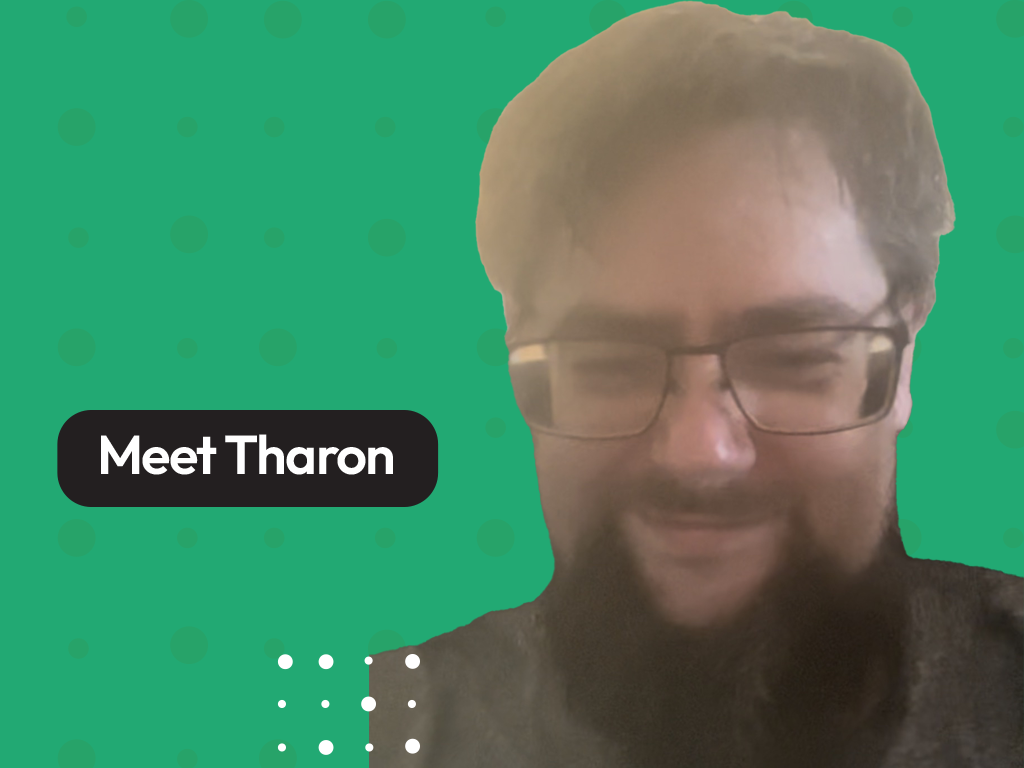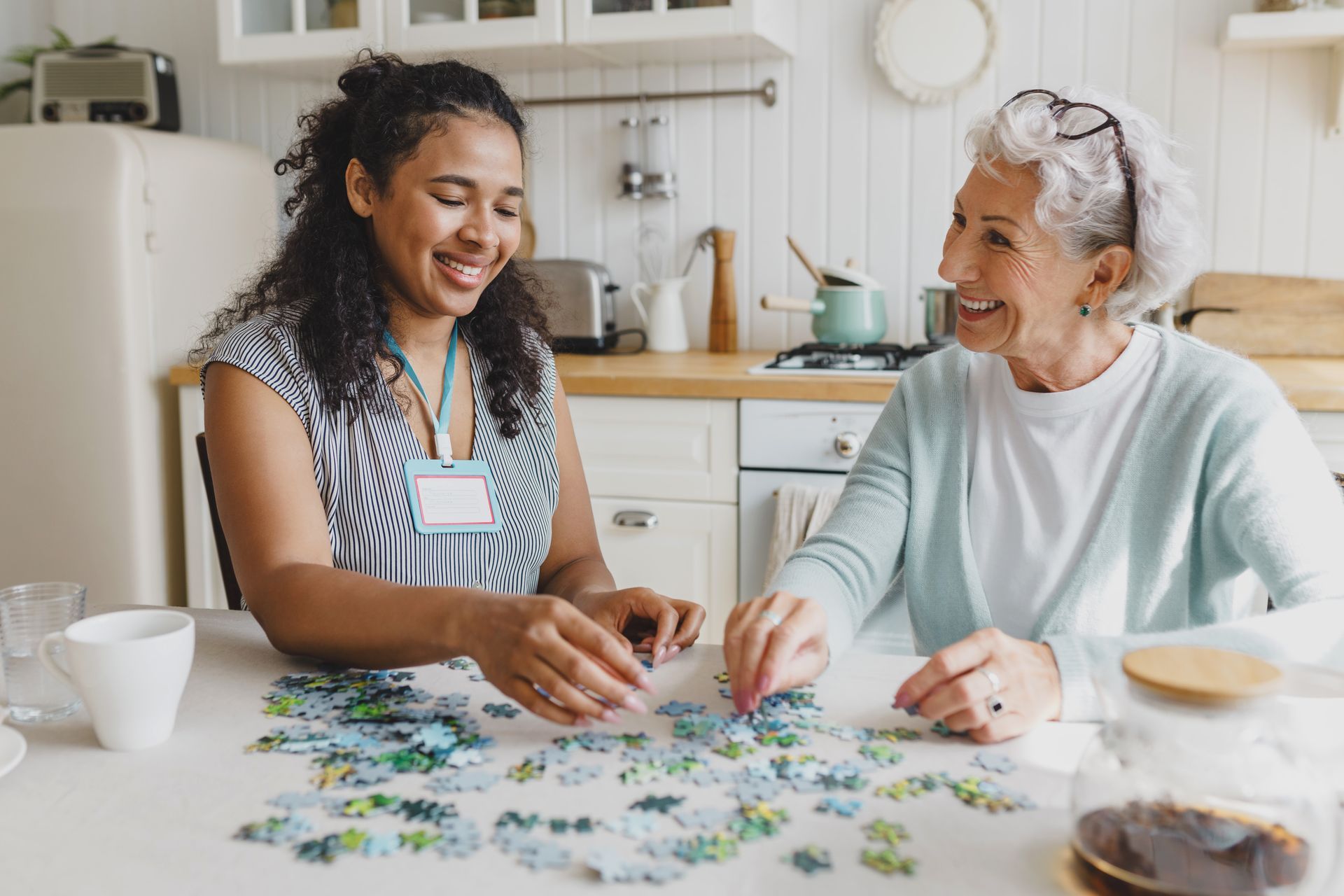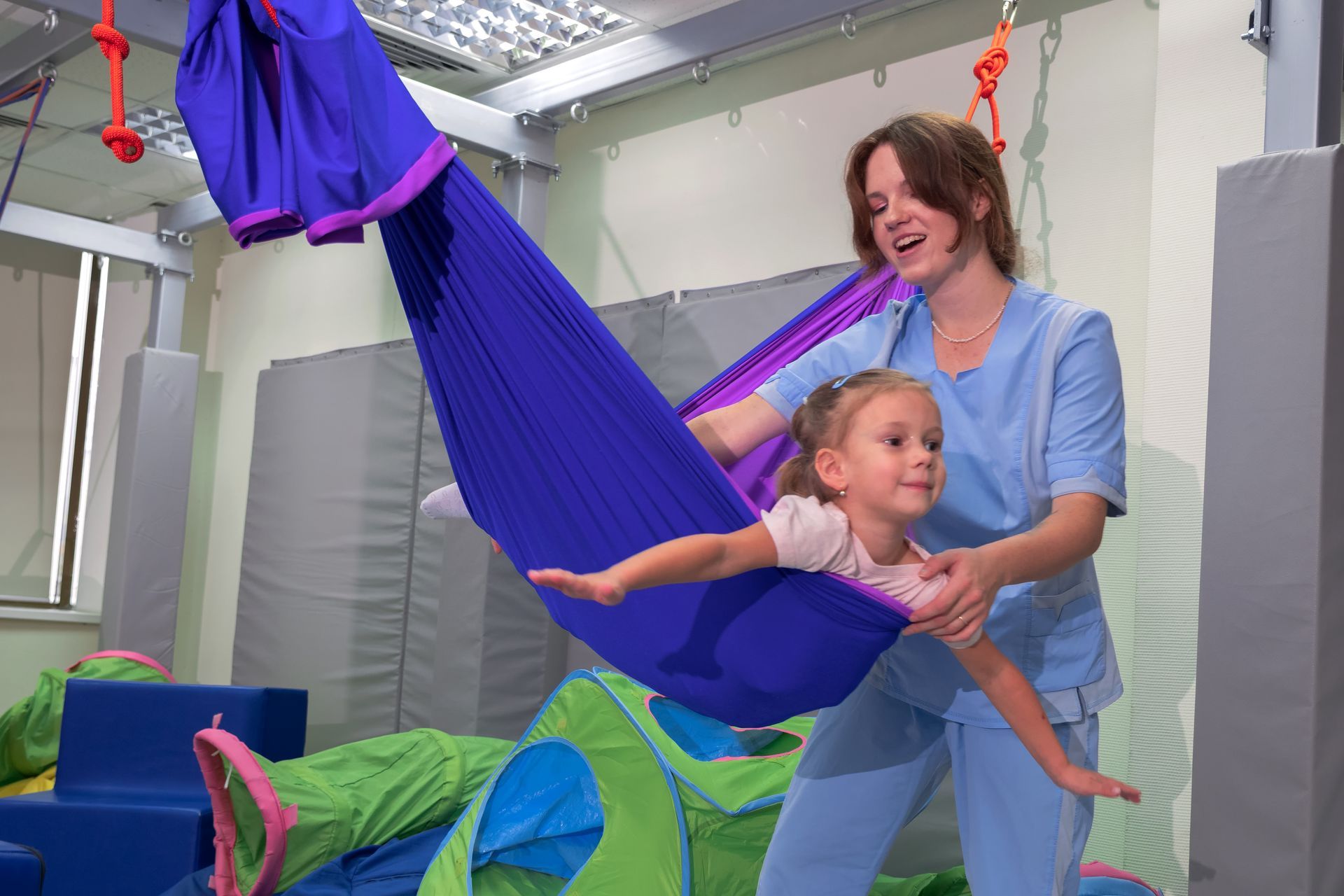Interview with Tharon, our neurodivergent consultant

At helpz, we believe that engaging with individuals who have lived experiences of disability is essential for creating inclusive and effective support services. We are proud to introduce Tharon, our new Neurodivergent Consultant, who brings invaluable insights and knowledge to our team.
Tharon will be contributing to our monthly newsletter, sharing his perspectives on various topics, as well as developing his own course on understanding autism. With his wealth of knowledge and personal experience, Tharon plays a pivotal role in guiding our efforts to be more neuroaffirming. Join us as we delve into an insightful interview with Tharon, exploring his vision for enhancing the lives of neurodivergent people.
Q: Hi Tharon, thank you for joining me today. We are excited to introduce you to our network and would love for them to get to know you. Let’s talk about you! Where are you from and what are your interests?
I live in the “silver city” (Broken Hill) – I love Broken Hill, even when I am not living here my heart is always there.
Broken Hill has a few claims to fame, one is that it was home to the artist Kevin Charles “Pro” Hart. When I left Broken Hill briefly as a child, “Pro” Hart gave each of my family members a New Testament bible with a hand-painted picture on the back of it. I still have mine, it is a cherished possession.
I am a late-diagnosed autistic at 25 years old, now 40 years old. I am single (and looking).
I am an avid reader – The Wheel of Time series, by Robert Jordan, is my absolute favourite. I will read anything and everything – I once read the dictionary backwards for fun - I am kidding, I did it more than once.
I have aspirations in breeding birds. I absolutely love birds and flying things – ask me about the Battle of Midway!
I also love Doctor Who, Star Wars (before Disney got involved), sci-f i in general, and games like chess, Monopoly, Dungeons and Dragons, and other TTRPGs, Ace Combat, Kingdom Hearts, Sid Meier's Civilisations, and War of Thunder, just to name a few.
Q: What brought you to this position and what are your goals?
I was running out of NDIS funding and completing assessments when I met Danny Burgess as a behaviour support practitioner.
Before I had the help of therapists, I had already researched everything. Danny asked me, “ What can we do for you?” I told him that I had already done all the research and was doing all the things already. From there, after he heard my knowledge and advocacy skills, Danny offered me a job.
Danny employed me to create a training program to help others understand Autism from the inside perspective, which is a work in progress, and we hope to have the first component available in the next month or so. I want to start developing peer support groups for people with ASD to help them understand themselves and help people avoid the mistakes I made.
Q: What does being neuroaffirming mean to you, and why is it important for disability organisations?
Neuroaffirming to me means treating me like everyone else, but having consideration that I am not like everyone else. We are often treated with casual cruelty – comments like “suck it up” or “everyone does that.” So many of us mask our autism because we feel that we cannot be ourselves around others.
We are not masking for us; it is painful and stressful for us; we are masking for you so that you are comfortable around us. Being neuroaffirming is about acceptance and letting people be who they are, without treating us differently or lesser.
We are not broken; we are different. Living in a world that you are not built for is traumatic. Neuroaffirming is about being kind and understanding. We know that some things we do are not acceptable, but we need to know why and how to do it differently, and sometimes we need this explained to us 10-15 times before we get it, and sometimes we will never get it.
Q: What are some common misconceptions about neurodivergence that you encounter, and how do you address them?
“We are not empathetic” – This is not true. We have empathy; we often do not know how to communicate that we care and are worried for you. We also often do not have control over our facial expressions and tone of voice. People misconstrue this as having no empathy, but it’s simply false.
“We are giving you a hard time” – Nope! We are just having a hard time. We might not know or understand the situation and need your help to understand it. If we are annoying you, say something. It does not need to be in the moment; it can be later on. We often do not realise we do something that makes you upset. Try to look at things f rom our perspective. Parents will bond so much better if they can draw themselves into their child’s world
“Autistics are all super smart” – We have the same spectrum of intelligence as neurotypical people.
Q: Is there anything else you would like to share about your vision for enhancing neuroaffirmation at helpz?
Neuroaffirmation is not a term I would use, but it is about being kind to one another, accepting each other for who they are, and understanding the ‘why’ of actions.
I don’t really care about the term 'neuro-affirming', it doesn’t really cross my mind, what I do care about is helping people understand each other so people can treat each other with kindness and consideration - just treat us like everyone else without forcing us to do something we aren’t ready for, or can’t do.
If I could sum it up in one phrase it would be - be the person we feel safe enough to unmask in f ront of. My goal is to help autistics understand themselves better, and for neurotypicals to understand autistics better.







